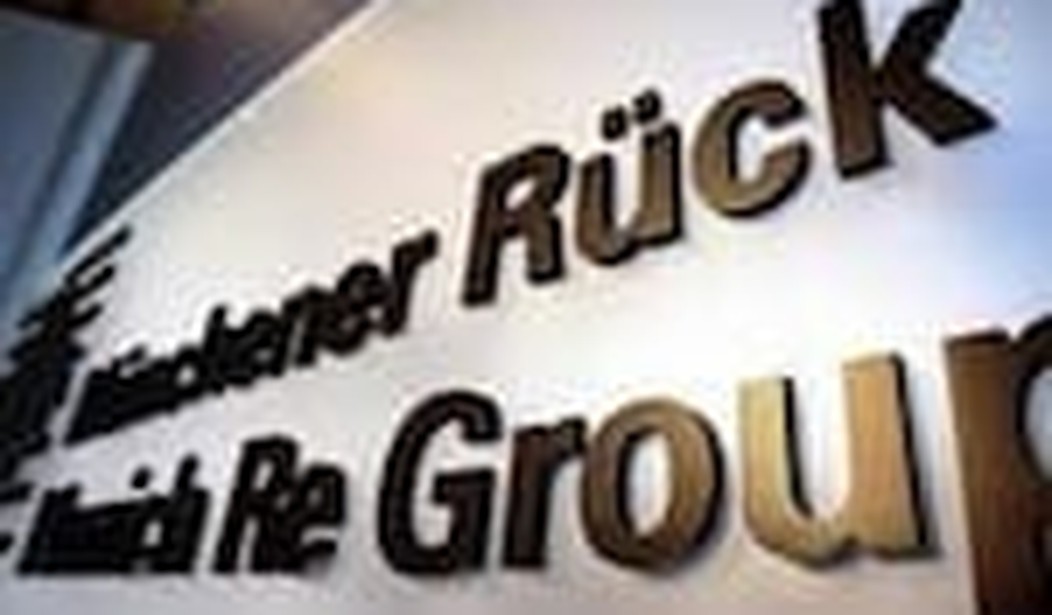Crony capitalism describes unduly close relationships between businesses and governments. It should also apply to groups which regularly favor one business over another for reasons other than financial profitability. It is a naive approach, because business is ultimately about profit. Anything else is a marketing ploy to further business opportunities. A business that does not make profit does not survive, no matter how green they may appear. Alternative-energy companies often demonstrate this, as many of them fail despite generous taxpayer-funded subsidies.
Recently, certain insurance premiums have risen dramatically. Why? Some firms say it is due to global increases in natural disasters.
In reality, there has been no increase in hurricanes, strong to violent tornadoes, or most other extreme weather-related events. Further, global conditions should be irrelevant to local insurance policies — no one experiences phenomena averaged over the entire planet. We all live and experience weather and climate in regions, and if we recognize that conditions are normal in our area, the threat must be somewhere over the horizon, if it exists at all.
The condominium-management team of one of our residences, after inquiring about a rate hike, was told that computer model-determined earthquake risk was higher in our area than previously thought.
What computer models? Which ones can accurately predict earthquakes? The answer is none.
Similarly, all computer model long-term weather and climate forecasts have been wrong. However, they are used as the basis for government and insurance business actions — this costs society billions of dollars.
Perhaps more than any other sector, the insurance industry has exploited fear of natural events and climate change. Re-insurance companies that insure smaller insurance companies have proliferated and have become increasingly competitive. These companies appear to be inflating income by exaggerating fear rather than by letting natural competition drive costs down.
The two largest companies in this field are Munich Re and Swiss Re. Both are actively involved in promoting alarm about global warming and climate change.
In 2004, Swiss Re funded The Great Warming, a three-part TV series shown on Discovery and other outlets. We were told regarding the series:
Experts, including Swiss Re’s climatologist Gerry Lemcke, participated in the series and sat on its advisory board to ensure the documentary would impress on its audience the importance of moving towards more climate-conscious behavior and business practices.
John Coomber, Swiss Re CEO in 2004, said:
Swiss Re is fostering broad awareness of climate risks and has committed financial resources and know-how to support “The Great Warming.” … We are taking a leadership role by putting strategies in place that will deal with the risks (and the opportunities) of our changing climate.
Where are Swiss Re’s forecasts today? The warming they and the United Nations Intergovernmental Panel on Climate Change (IPCC) predicted and exploited stopped in 1998. Yet — as recently as November 9, 2012 — the insurance giant asserted:
Today, global warming is a fact.
What warming?
There has been none in the past decade and a half, and the UK Met Office forecasts essentially none until 2018. Is Swiss Re activism any less biased than that of someone who takes their marching orders from a fossil fuel company?
Munich Re claims:
[The company] invests a large proportion of its funds on the basis of sustainability criteria (socially responsible investments). … Some €100m has already been invested in renewable energies alone and our commitment in this sector is set to increase in the future.
“Social responsibility” requires recognition and planning for climate and weather realities, not taking advantage of public fears. It also requires acknowledging the frequent failure of alternate energy companies despite massive support from government and industry.
Insurance companies must also take note of the fact that many countries lured into hopelessly impractical green-energy policies are scrambling and changing course. Holger Krahmer, German member of the European Parliament, said:
For the first time, rising energy costs and the declining competitiveness of the European economy will be rated higher than obviously unenforceable global climate change ambitions. The economic and social consequences of collective hysteria can no longer be ignored, as the governments of the EU member states admit in this paper.
We need to rethink the role, cost, and need for insurance. It often encourages bad practices and careless behavior. If people live in high-risk zones, why should others have to pay when the inevitable happens? It also invites exploitation of fear for unwarranted profit — such as when insurance companies raise rates using artificially increased risk assessments based on failed computer models which are built on inadequate data, and when they work with experts paid to produce alarmist science.
Munich Re, for example, uses the IPCC as their primary source of information, despite broad exposure of the UN body’s corruption and failed predictions.
Like many insurance companies, Swiss Re tells us that they are “committed to being a responsible company.” They, and the many other corporations that are cashing in on the crony capitalism of the climate scare, need to prove it by stopping the exploitation of scientifically unjustified, self-promoted fear for profit. They need to realize that there can be no successful businesses in a failed society, and their support of the climate scare is accelerating that failure.









Join the conversation as a VIP Member